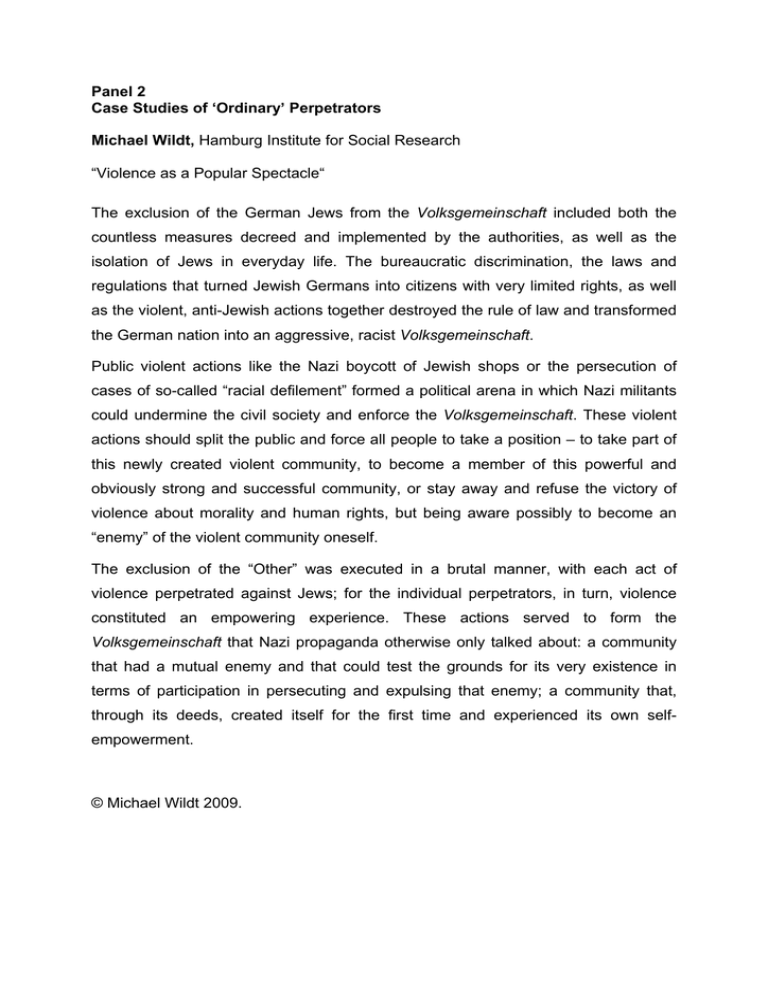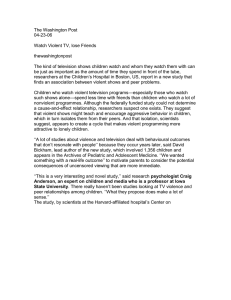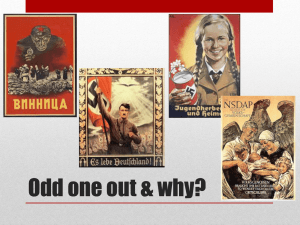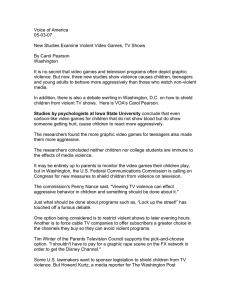Panel 2 Case Studies of ‘Ordinary’ Perpetrators Michael Wildt,
advertisement

Panel 2 Case Studies of ‘Ordinary’ Perpetrators Michael Wildt, Hamburg Institute for Social Research “Violence as a Popular Spectacle“ The exclusion of the German Jews from the Volksgemeinschaft included both the countless measures decreed and implemented by the authorities, as well as the isolation of Jews in everyday life. The bureaucratic discrimination, the laws and regulations that turned Jewish Germans into citizens with very limited rights, as well as the violent, anti-Jewish actions together destroyed the rule of law and transformed the German nation into an aggressive, racist Volksgemeinschaft. Public violent actions like the Nazi boycott of Jewish shops or the persecution of cases of so-called “racial defilement” formed a political arena in which Nazi militants could undermine the civil society and enforce the Volksgemeinschaft. These violent actions should split the public and force all people to take a position – to take part of this newly created violent community, to become a member of this powerful and obviously strong and successful community, or stay away and refuse the victory of violence about morality and human rights, but being aware possibly to become an “enemy” of the violent community oneself. The exclusion of the “Other” was executed in a brutal manner, with each act of violence perpetrated against Jews; for the individual perpetrators, in turn, violence constituted an empowering experience. These actions served to form the Volksgemeinschaft that Nazi propaganda otherwise only talked about: a community that had a mutual enemy and that could test the grounds for its very existence in terms of participation in persecuting and expulsing that enemy; a community that, through its deeds, created itself for the first time and experienced its own selfempowerment. © Michael Wildt 2009.




